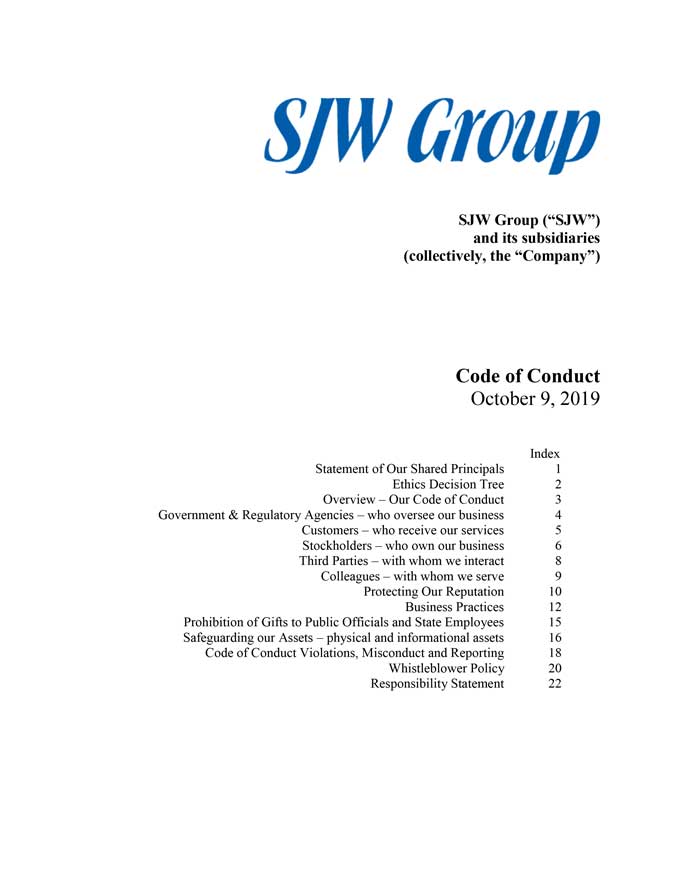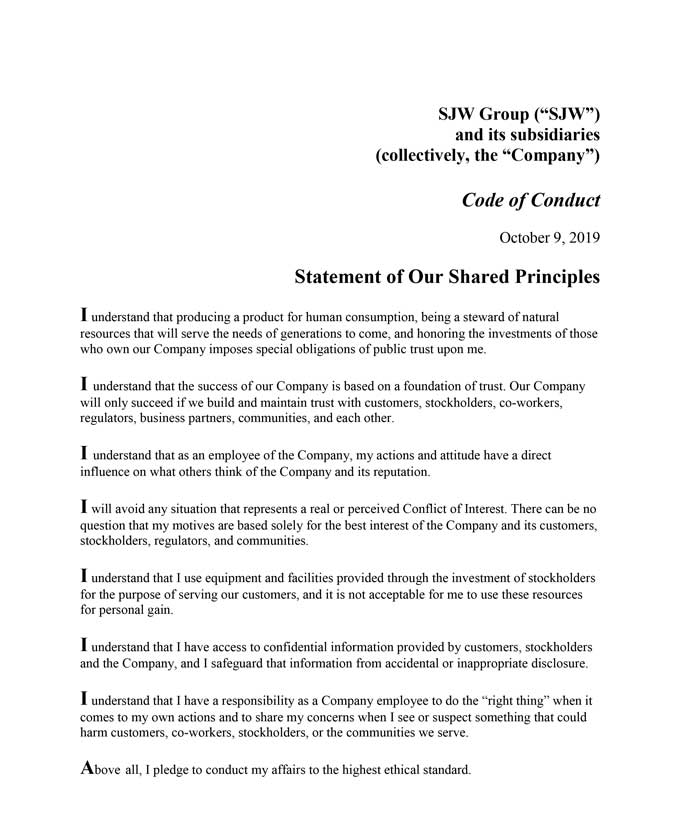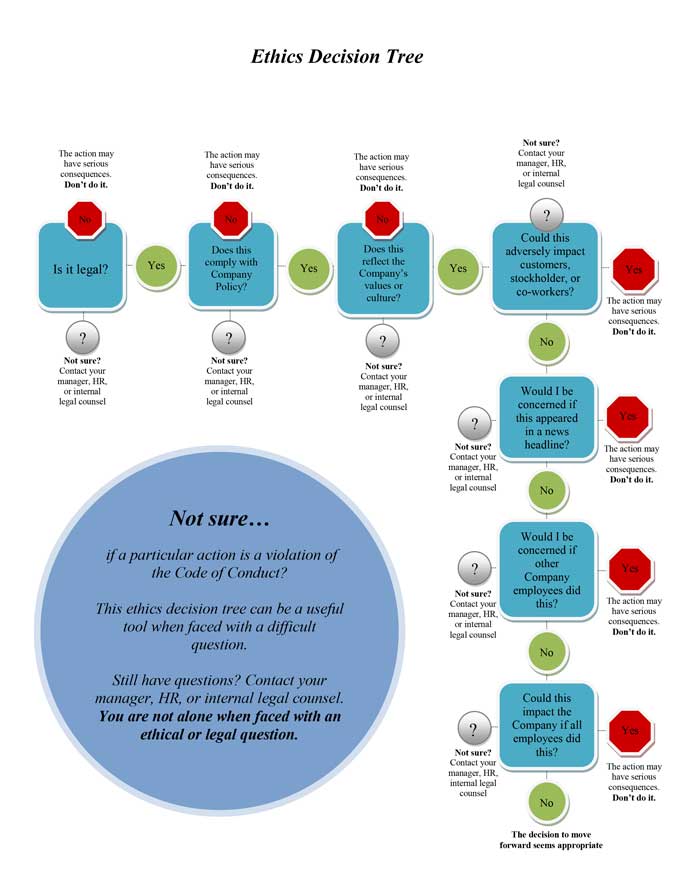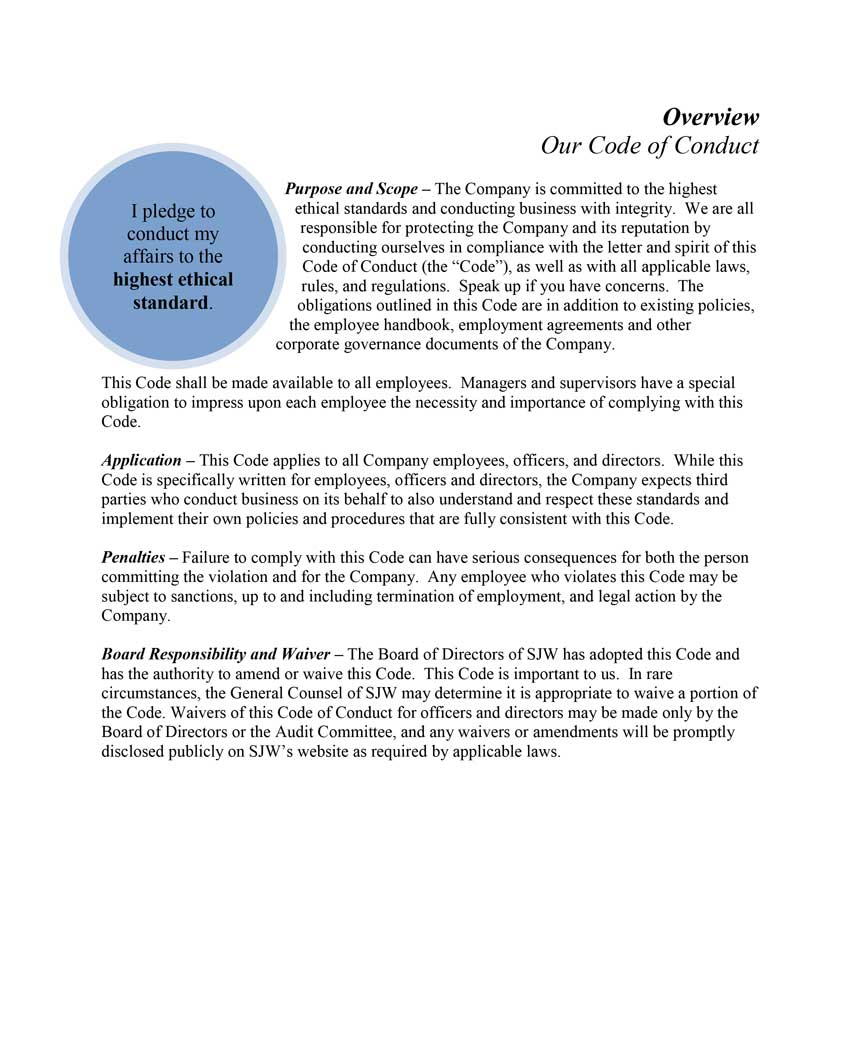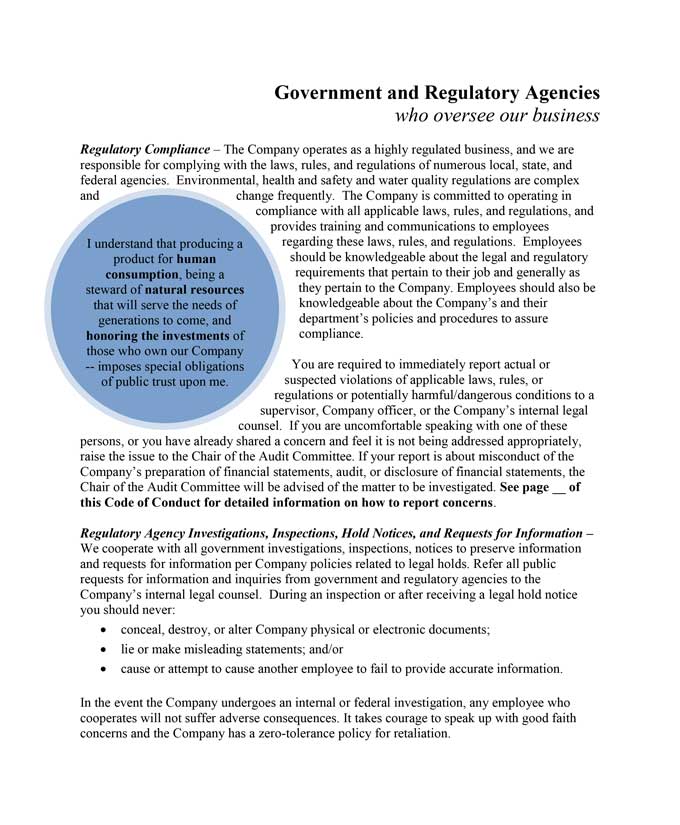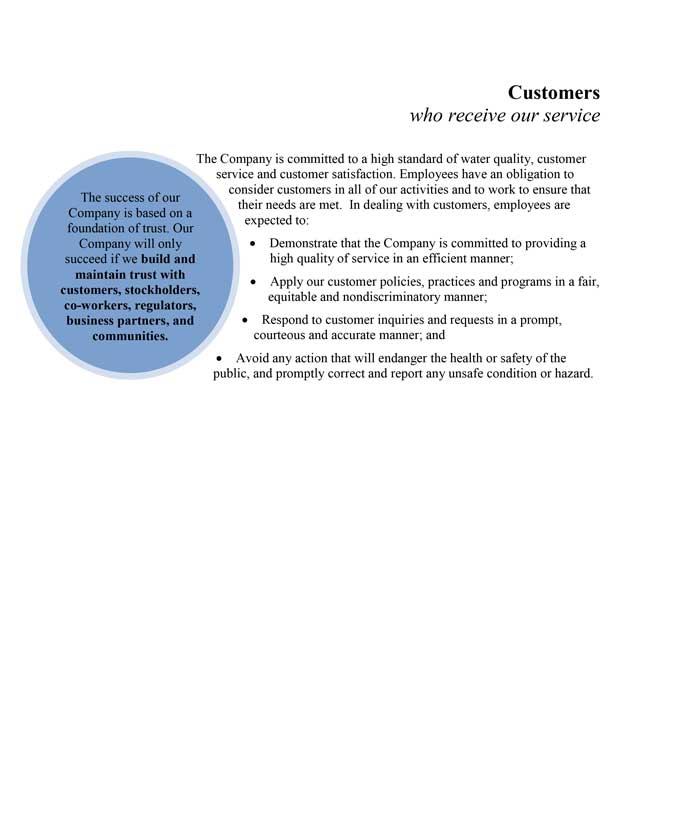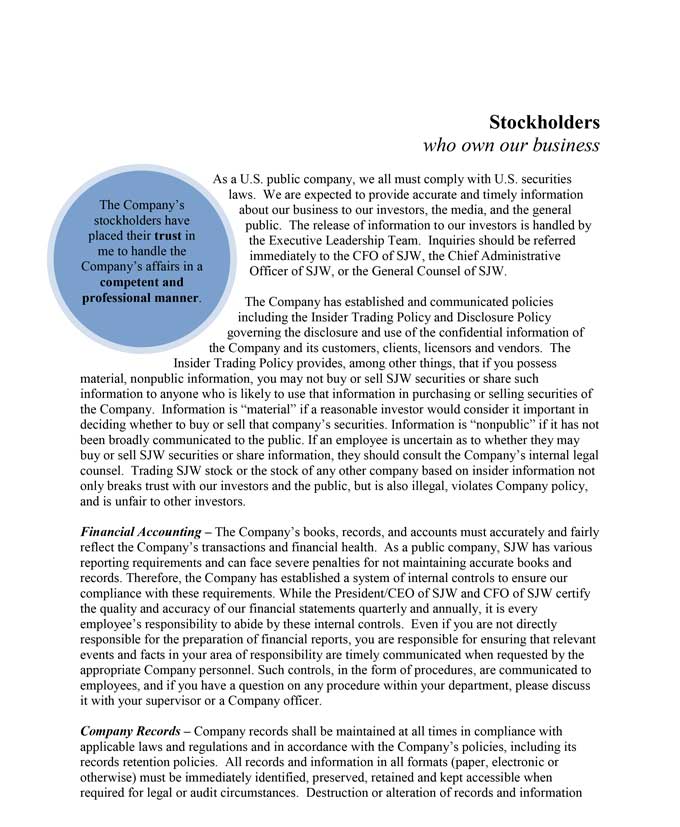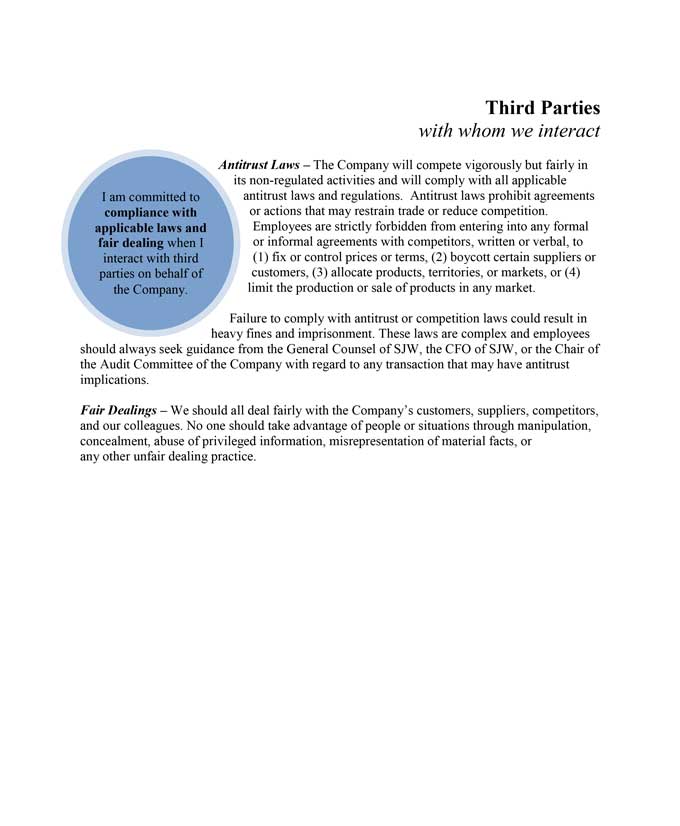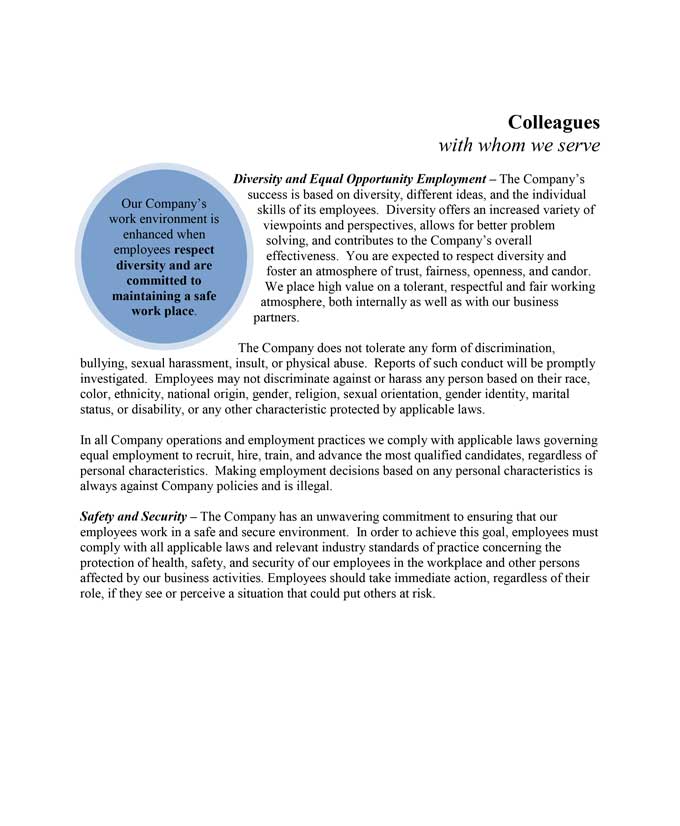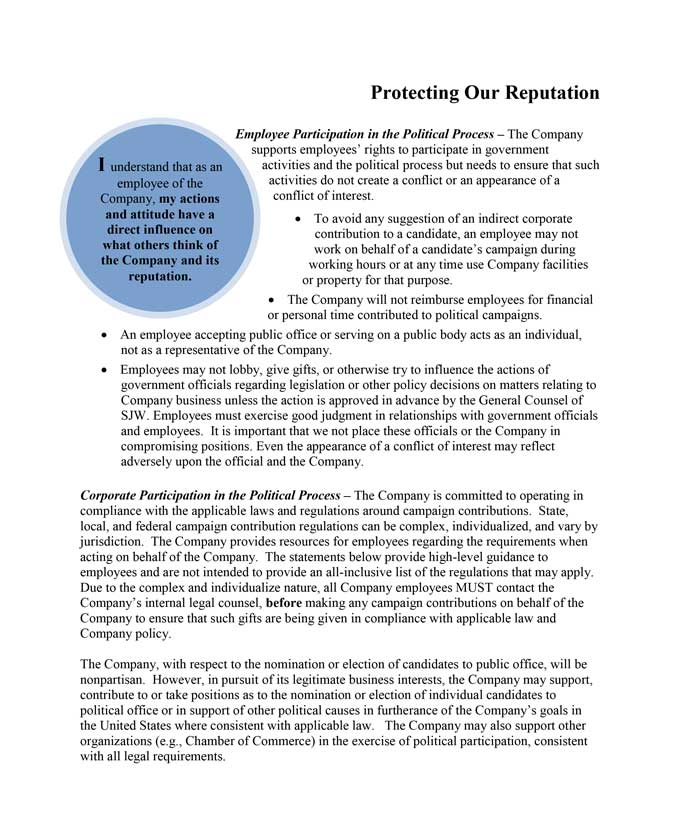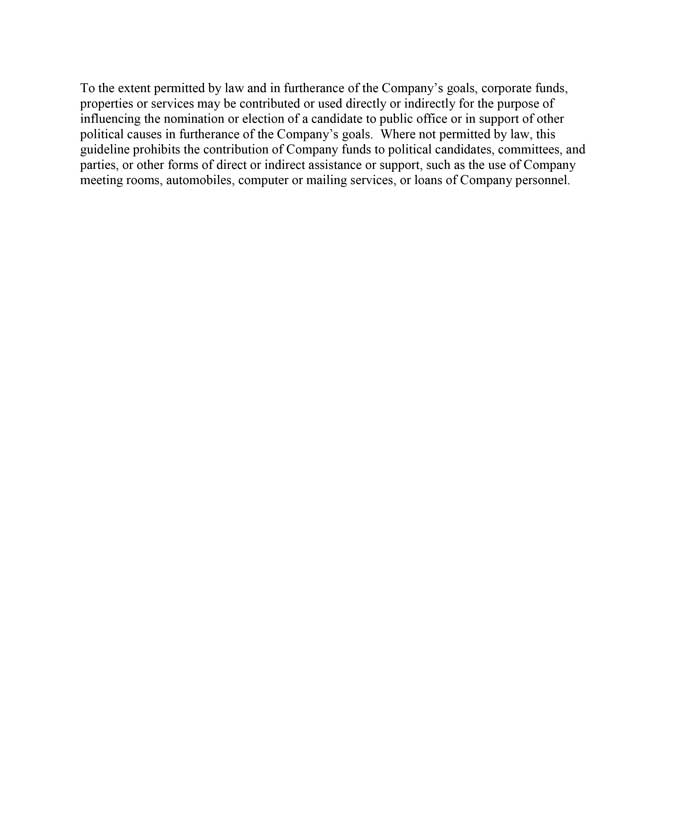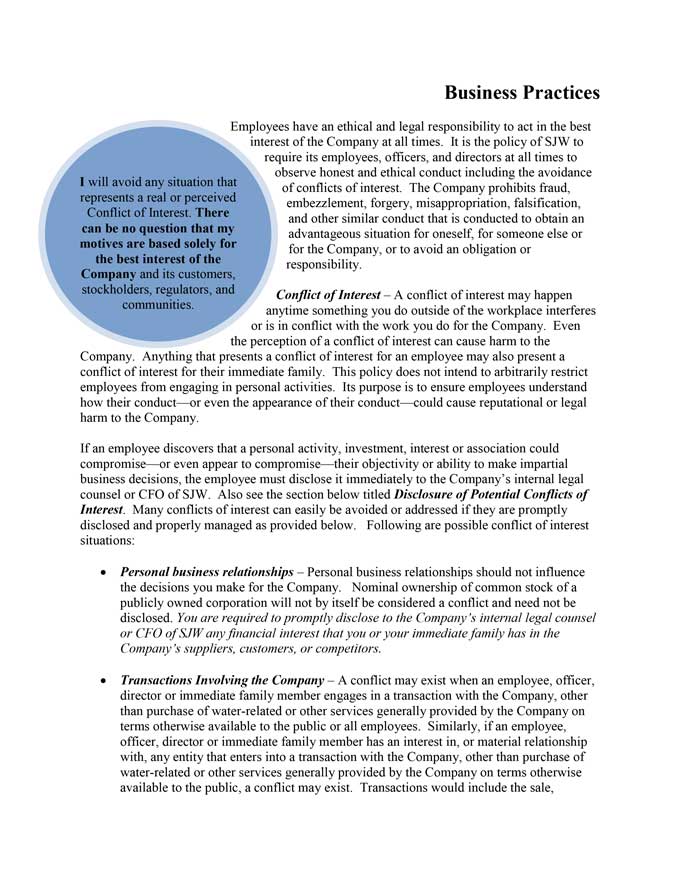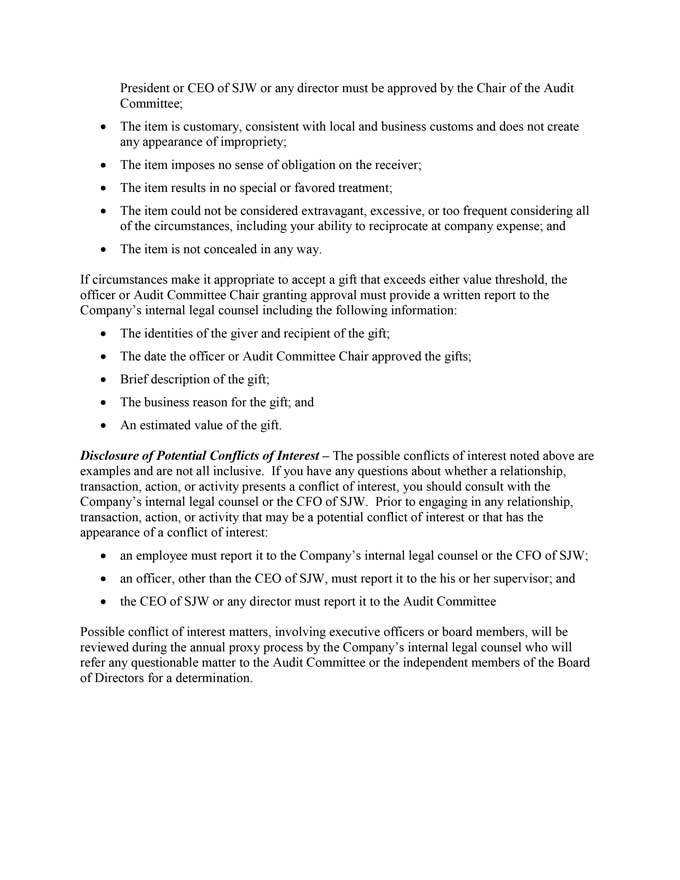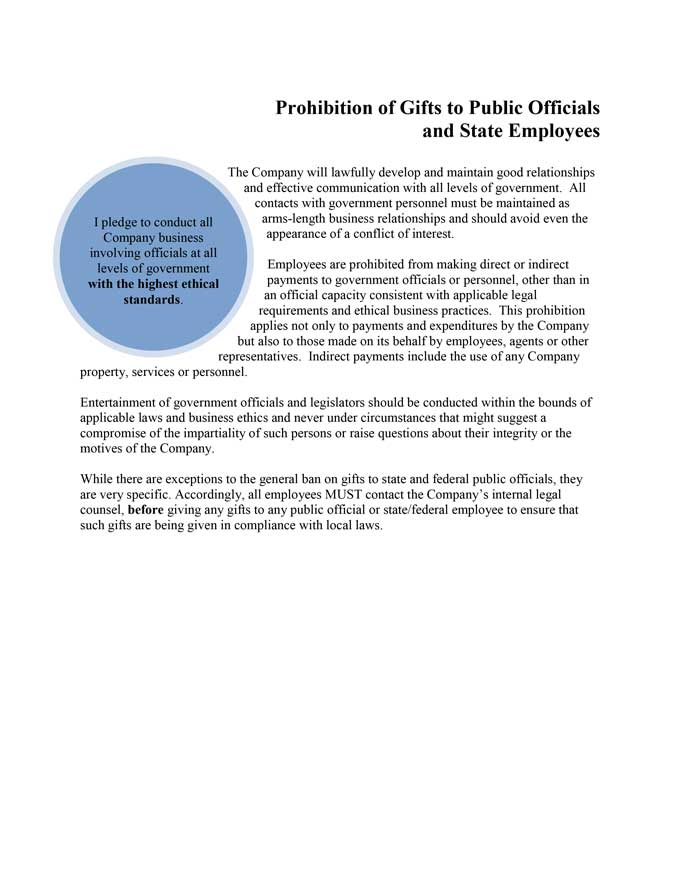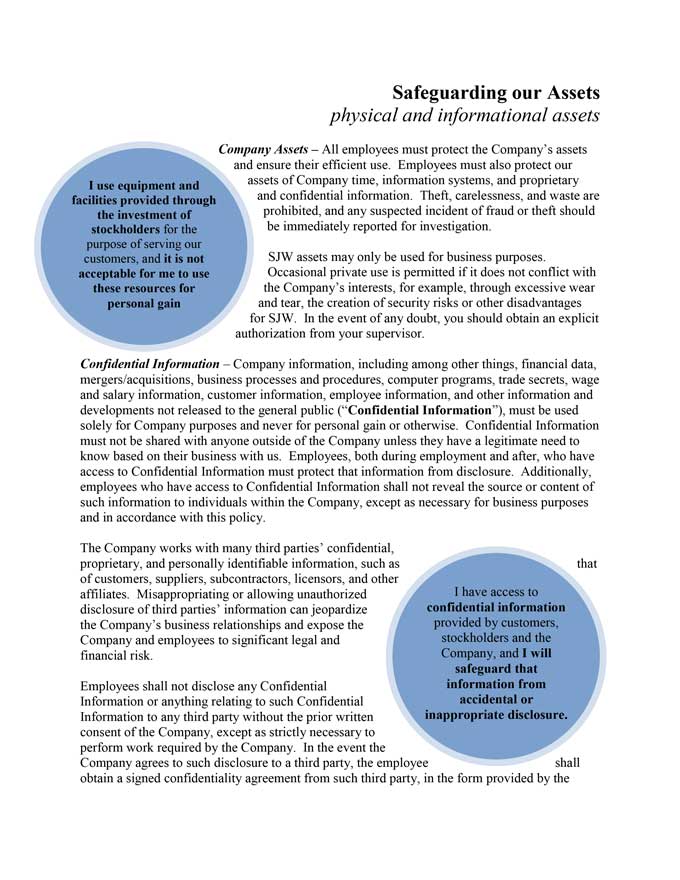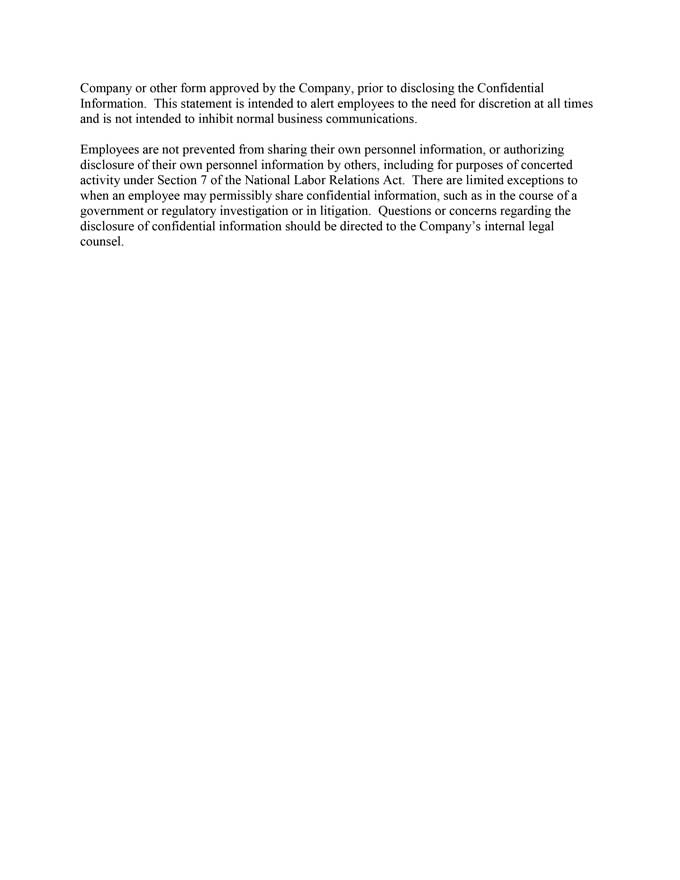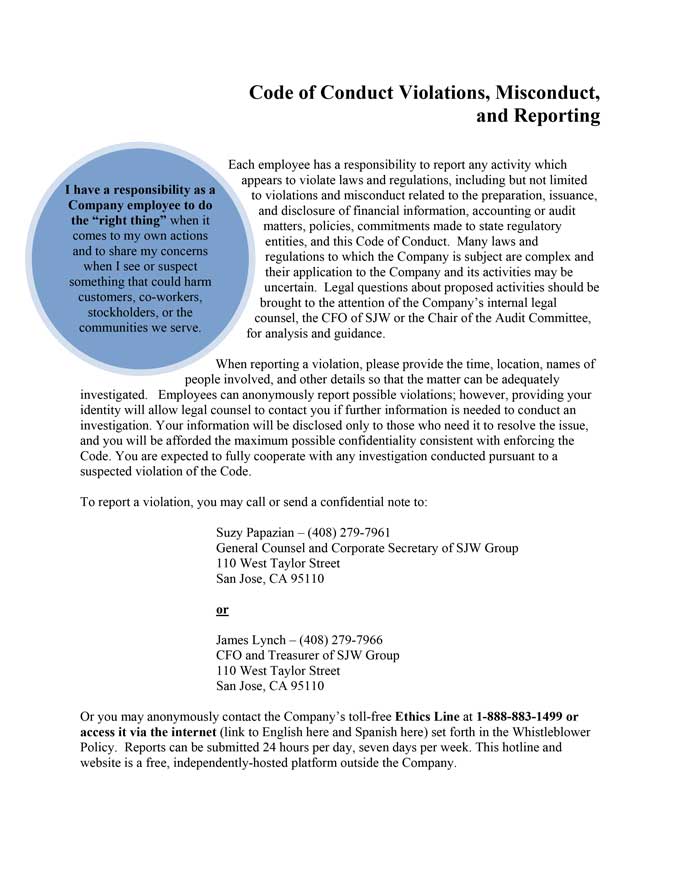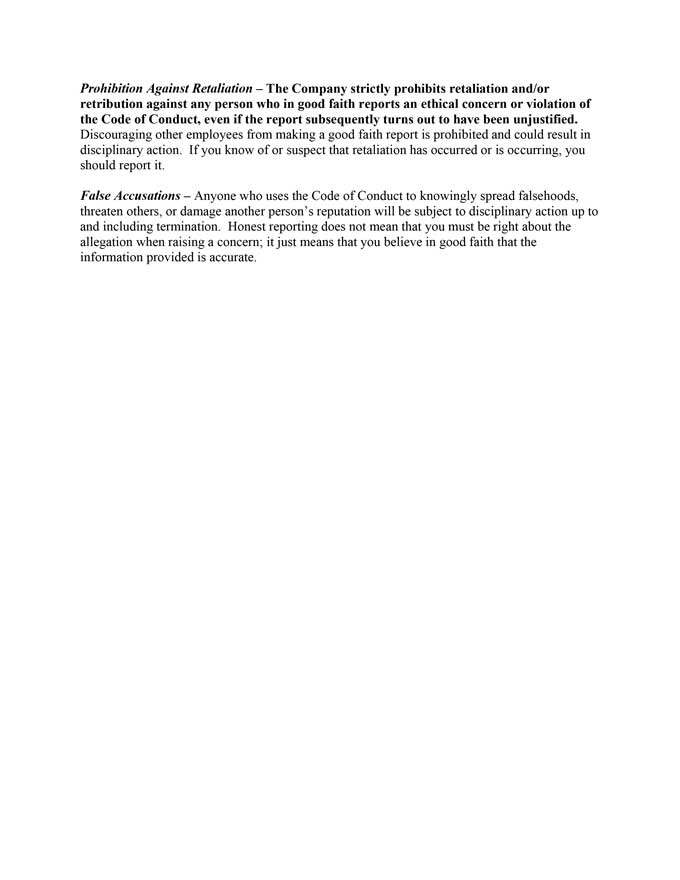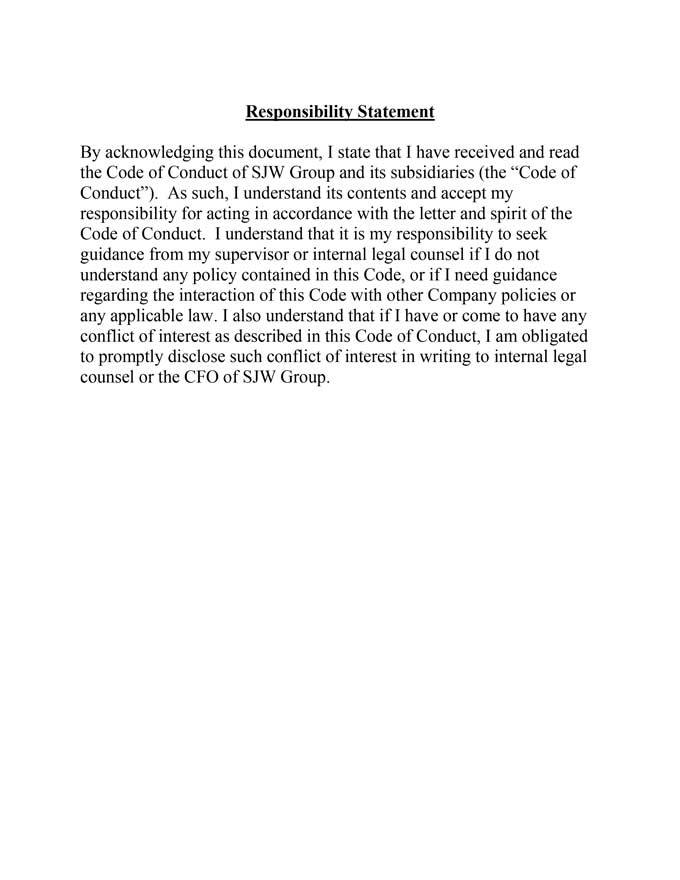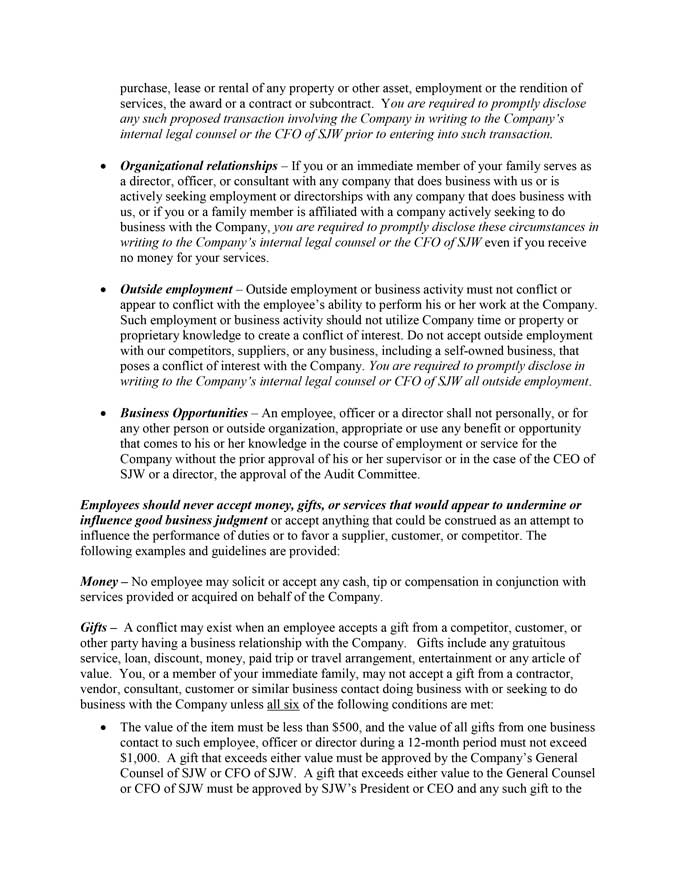
purchase, lease or rental of any property or other asset, employment or the rendition of services, the award or a contract or
subcontract. You are required to promptly disclose any such proposed transaction involving the Company in writing to the Company’s internal legal counsel or the CFO of SJW prior to entering into such transaction. ï,· Organizational
relationships – If you or an immediate member of your family serves as a director, officer, or consultant with any company that does business with us or is actively seeking employment or directorships with any company that does business with
us, or if you or a family member is affiliated with a company actively seeking to do business with the Company, you are required to promptly disclose these circumstances in writing to the Company’s internal legal counsel or the CFO of SJW even
if you receive no money for your services. ï,· Outside employment – Outside employment or business activity must not conflict or appear to conflict with the employee’s ability to perform his or her work at the Company. Such
employment or business activity should not utilize Company time or property or proprietary knowledge to create a conflict of interest. Do not accept outside employment with our competitors, suppliers, or any business, including a self-owned
business, that poses a conflict of interest with the Company. You are required to promptly disclose in writing to the Company’s internal legal counsel or CFO of SJW all outside employment. ï,· Business Opportunities – An
employee, officer or a director shall not personally, or for any other person or outside organization, appropriate or use any benefit or opportunity that comes to his or her knowledge in the course of employment or service for the Company without
the prior approval of his or her supervisor or in the case of the CEO of SJW or a director, the approval of the Audit Committee. Employees should never accept money, gifts, or services that would appear to undermine or influence good business
judgment or accept anything that could be construed as an attempt to influence the performance of duties or to favor a supplier, customer, or competitor. The following examples and guidelines are provided: Money – No employee may solicit or
accept any cash, tip or compensation in conjunction with services provided or acquired on behalf of the Company. Gifts – A conflict may exist when an employee accepts a gift from a competitor, customer, or other party having a business
relationship with the Company. Gifts include any gratuitous service, loan, discount, money, paid trip or travel arrangement, entertainment or any article of value. You, or a member of your immediate family, may not accept a
gift from a contractor, vendor, consultant, customer or similar business contact doing business with or seeking to do business with the Company unless all six of the following conditions are met: ï,· The value of the item must be less
than $500, and the value of all gifts from one business contact to such employee, officer or director during a 12-month period must not exceed $1,000. A gift that exceeds either value must be approved by the
Company’s General Counsel of SJW or CFO of SJW. A gift that exceeds either value to the General Counsel or CFO of SJW must be approved by SJW’s President or CEO and any such gift to the President or CEO of SJW or any director must be
approved by the Chair of the Audit Committee;
Page | 13
